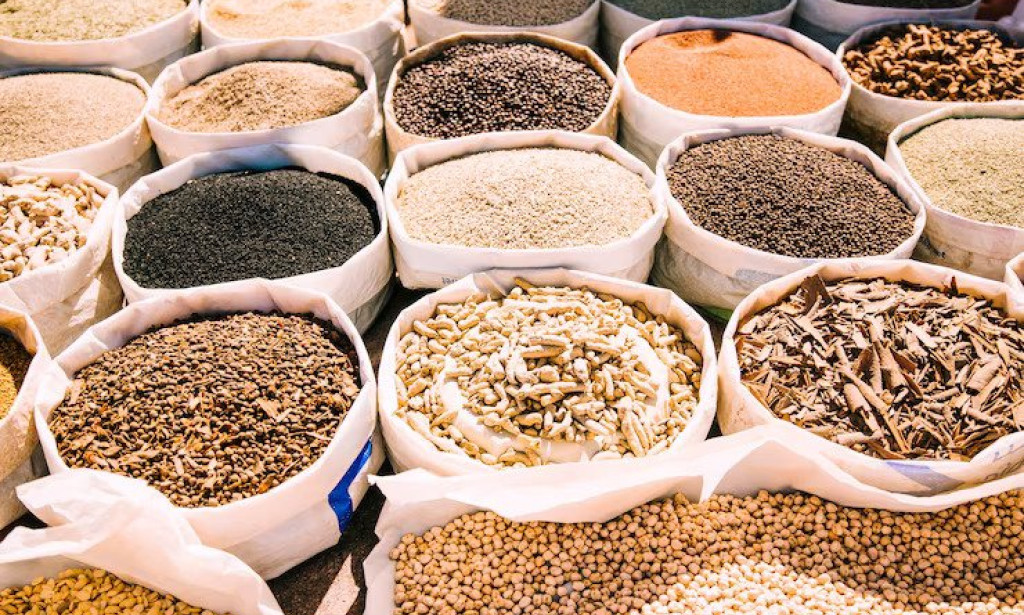A healthy heart is the cornerstone of overall well-being, and what we eat plays a vital role in its maintenance. In recent years, seeds have emerged as tiny powerhouses of nutrition, offering a natural and delicious way to promote heart health. In this article, ACP FOOD will explore the incredible benefits of incorporating seeds into your diet to nurture your heart and enhance your overall health.
The Heart's Precious Beat
Our heart is a remarkable organ, tirelessly pumping blood and oxygen throughout our body, ensuring that every cell receives the nourishment it needs to function optimally. However, in today's fast-paced world, factors like poor dietary choices, stress, and sedentary lifestyles can take a toll on our heart health, leading to various cardiovascular issues.
Seeds: Nature's Gift to Heart Health
Seeds, whether flaxseeds, chia seeds, pumpkin seeds, or sunflower seeds, are nutrient-dense powerhouses. They are rich in heart-loving nutrients that can help maintain cardiovascular health. Here's how they do it:
Omega-3 Fatty Acids: Seeds such as flaxseeds and chia seeds are excellent sources of omega-3 fatty acids, known for their heart-protective properties. Omega-3s help reduce inflammation, lower blood pressure, and improve overall heart function.
Fibre: Seeds are high in dietary fibre, which aids in controlling cholesterol levels. Soluble fibre, in particular, can help reduce LDL (bad) cholesterol, a major risk factor for heart disease.
Antioxidants: Seeds contain a variety of antioxidants, including vitamin E and polyphenols, which help combat oxidative stress and reduce the risk of heart disease.
Minerals: Seeds are rich in heart-healthy minerals like magnesium and potassium, which support proper heart rhythm and blood pressure regulation.
Incorporating Seeds into Your Diet
Now that you know the benefits of seeds for heart health, here are some delicious ways to incorporate them into your daily diet:
Smoothies: Add a tablespoon of chia seeds or flaxseeds to your morning smoothie for an extra nutritional boost.
Yogurt or Oatmeal: Sprinkle a handful of sunflower or pumpkin seeds on top of your yogurt or oatmeal for added crunch and flavour.
Salads: Toss a mix of seeds into your salads for added texture and nutrition. They also make a great substitute for croutons.
Baking: Replace a portion of flour in your baking recipes with ground flaxseeds for added fibre and omega-3s.
Snacking: Keep a small container of mixed seeds (e.g. chia, flax, and pumpkin seeds) handy for a heart-healthy snack.
A Balanced Approach
While seeds offer numerous heart-healthy benefits, it's essential to remember that a well-rounded diet is key to overall health. Incorporate seeds into a diet rich in fruits, vegetables, whole grains, lean proteins, and healthy fats for maximum benefits. Also, consult with a healthcare professional for personalized dietary recommendations, especially if you have specific heart health concerns.
Our heart is a precious organ that deserves the best care we can provide. By incorporating seeds into our daily diet, we can nourish our heart with essential nutrients that promote cardiovascular health. These tiny yet mighty seeds offer a delicious and convenient way to protect our heart and enhance our overall well-being. So, whether you sprinkle them on your breakfast or blend them into your smoothies, start harnessing the power of seeds to nurture your heart and enjoy a healthier, happier life.
The Heart-Healthy Journey Ahead
Embracing a heart-healthy lifestyle is a journey, and seeds are a wonderful companion on this path. Beyond their nutritional benefits, seeds also bring variety and flavour to your meals, making healthy eating a delightful experience.
Here are a few more ways to infuse seeds into your daily routine:
Homemade Energy Bars: Create your own energy bars using a mix of seeds, nuts, dried fruits, and a touch of honey. These make for a convenient, heart-healthy snack on the go.
Seed Butter: Swap out your traditional peanut butter for seed butter, such as tahini (made from sesame seeds) or sunflower seed butter. Spread it on whole-grain toast or use it as a dip for vegetables.
Seeds in Soups: Add a sprinkle of seeds to your soups or stews just before serving. This not only enhances the texture but also boosts the nutritional content of your meals.
Seeds for Dessert: Incorporate seeds into your dessert recipes. For instance, use ground flaxseeds in place of some of the flour in muffins or add crushed seeds to your favourite cookie recipes.
Hydration with Chia: Chia seeds have a unique ability to absorb liquid and form a gel-like consistency. Mix them with water, fruit juice, or yogurt to create a hydrating chia pudding that's both nutritious and delicious.
Remember that consistency is key when it comes to heart health. Making seeds a regular part of your diet, along with other heart-healthy foods and lifestyle choices like regular exercise and stress management, can significantly reduce the risk of cardiovascular diseases.
Additionally, always choose high-quality, fresh seeds and store them properly to preserve their nutritional value. Keep seeds in a cool, dark place to prevent them from going rancid.
Consulting a Healthcare Professional
If you have specific heart health concerns or dietary restrictions, it's advisable to consult with a healthcare professional or registered dietitian. They can provide personalized guidance tailored to your unique needs and help you create a heart-healthy eating plan that incorporates the benefits of seeds.
In conclusion, nurturing heart health through the power of seeds is not only nutritious but also a tasty and accessible way to take care of one of your body's most vital organs. By integrating seeds into your daily diet and maintaining a balanced approach to nutrition and lifestyle, you can embark on a heart-healthy journey that leads to a longer and more vibrant life. So, seize the opportunity to enrich your meals with these tiny yet mighty treasures and let them contribute to your heart's well-being for years to come.



You must be logged in to post a comment.